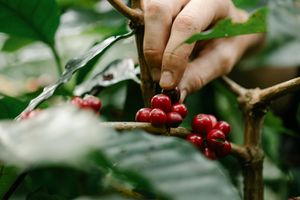
The fundamental aspects include:
1. Quality: Specialty coffee is graded and must score 80 points or higher on the SCA's 100-point scale, which evaluates various factors such as acidity, flavor, aftertaste, body, balance, and overall impressiveness. This rigorous assessment ensures that only the finest coffees are considered specialty.
2. Origin: The origin of specialty coffee plays a critical role in its flavor profile. Specialty coffees often come from specific regions known for exceptional coffee production, such as Ethiopia, Colombia, or Guatemala. The unique climatic conditions, soil types, and altitude of these regions impart distinctive flavors to the beans.
3. Traceability: Specialty coffee emphasizes transparency in its sourcing. Producers often provide detailed information about the coffee's journey from farm to cup, including the farm's location, processing methods, and the farmers involved. This traceability helps consumers connect with the source of their coffee and promotes ethical practices.

4. Processing: The method used to process the coffee cherries significantly influences the flavor. Specialty coffee is often processed using methods like washed, natural, or honey, each imparting different taste notes and complexities. Careful attention to processing ensures that the inherent flavors of the beans are preserved and highlighted.
5. Roasting: Specialty coffee is typically roasted in small batches to control the process closely and achieve a desired flavor profile. Roasters often experiment with different roast levels to enhance the unique characteristics of each coffee, ensuring an optimal balance of acidity, sweetness, and body.
6. Flavor Complexity: One of the hallmark properties of specialty coffee is its complex flavor profile. Drinkers may experience a wide range of tasting notes, including fruity, floral, nutty, or chocolatey flavors, each influencing the overall experience. This complexity often encourages coffee enthusiasts to explore various origins and processing methods to discover their preferences.
7. Sustainability and Ethical Sourcing: Many specialty coffee producers prioritize sustainable farming practices, fair trade, and social responsibility. By supporting farmers who adhere to these standards, consumers contribute to better living conditions and promote environmentally friendly agricultural practices.
In summary, specialty coffee represents the pinnacle of coffee quality, characterized by its unique flavors, meticulous production standards, ethical sourcing, and commitment to sustainability. For many coffee lovers, it is not just a beverage but an artisanal experience that involves appreciation for the art and science behind each cup.




